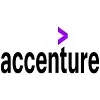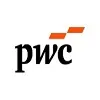Full Course
£110
£275Course Includes:
-
Online Study Mode
-
450 Hours
-
Study at your own Pace
-
Completion Certificate
Key Aspects of Course
-
Level 5 Diploma
-
Full Online Course
-
CPD Approved
-
Employer Approved
-
Fully Endorsed Course
-
450 Hours Training
-
No Entry Requirements
-
Boost Your Resume
-
Own Pace Study
-
Premium Course Material
-
Completion Certificate
£110
£275
Advanced Project Management Course
The Advanced Diploma in Project Management QLS Level 5 is designed for learners aiming to strengthen their project leadership skills and gain deeper insight into professional project delivery. As an industry-relevant Advanced Project Management Course, this programme explores practical tools and frameworks used to manage project scope, schedules, budgets, risks, and teams. It provides the knowledge and confidence needed to plan and execute successful projects across a variety of sectors.
This qualification also serves as a structured Level 5 Project Management pathway for individuals preparing to move into supervisory or project coordination roles. With flexible online study and detailed training materials, learners gain the foundation required for higher-level Project Management Programs and professional development. By the end of the course, students will be equipped with essential managerial, analytical, and organisational skills for effective project leadership.
- Project planning and scheduling
- Budgeting and resource allocation
- Leadership and communication
- Problem-solving
- Stakeholder engagement
- Risk assessment and mitigation
- Team coordination
- Quality management
- Contract and procurement basics
- Performance monitoring
this course
- Aspiring project managers
- Project supervisors
- Team leaders
- Operations staff
- Business professionals
- Junior consultants
- Entrepreneurs
- Students pursuing project management careers
SYLLABUS
Module 1
Module 1
Foundations of Modern Project Management
Module 2
Module 2
Project Lifecycle, Scope & Integration Management
Module 3
Module 3
Planning, Scheduling & Cost Management in the AI Era
Module 4
Module 4
Risk, Quality & Procurement Management
Module 5
Module 5
Human Resource Management & Team Leadership
Module 6
Module 6
Communication, Conflict & Change Management
Expected Project Management market growth by the end of 2027
Increased in growth in different learning organizations
Average Salary
£32k - £71k per Annum
Hiring Companies
Certifications
Certification & Delivery — 100% Included
CPD Accredited PDF Certificate (Digital Certificate Included)
Printed Endorsed QLS Certificate
Postage Included (No extra charges)
No Hidden Fees — ever
Learner Stories
Frequently Asked Questions (FAQs)
There is no fixed duration. Our Project Management Courses Online allow you to study at your own pace, whether you move quickly or prefer a gradual approach.
No. Every element of our project management distance learning courses is online, so you can complete your studies from home, work, or anywhere with Internet access.
None. The fee shown on each course page includes tutor support, digital materials, and registration. Optional certificate upgrades remain voluntary.
From day one, you’ll be paired with a dedicated tutor who will explain difficult topics, offer personalised feedback, and support you through all assessments.
Yes. Learners across the world join our Project Management Online Courses, as everything is delivered digitally with no geographical restrictions.
Yes. Our Distance Learning Project Management Courses introduce essential concepts, making them ideal for beginners with no prior experience.
A computer, tablet, or smartphone with Internet access is all that’s required. All materials are included within your course fee.
Absolutely. Our Project Management Courses Online include structured lessons, examples, and assessments designed specifically to make online learning effective.
If you’re just starting out, an introductory certificate is a great fit. For career advancement, higher-level Project Management Online Courses offer deeper knowledge and broader skill-building.
Yes. Core skills gained through our project management distance learning courses support roles in coordination, scheduling, administration, leadership, and project support across many industries.
Full Course
£110
£275Course Includes:
-
Online Study Mode
-
450 Hours
-
Study at your own Pace
-
Completion Certificate
Key Aspects of Course
-
 Full Online Course
Full Online Course -
 CPD Approved
CPD Approved -
 Employer Approved
Employer Approved -
 Fully Endorsed Course
Fully Endorsed Course -
 No Entry Requirements
No Entry Requirements -
 Boost Your Resume
Boost Your Resume -
 Own Pace Study
Own Pace Study -
 Premium Course Material
Premium Course Material -
 Completion Certificate
Completion Certificate
£110
£275






